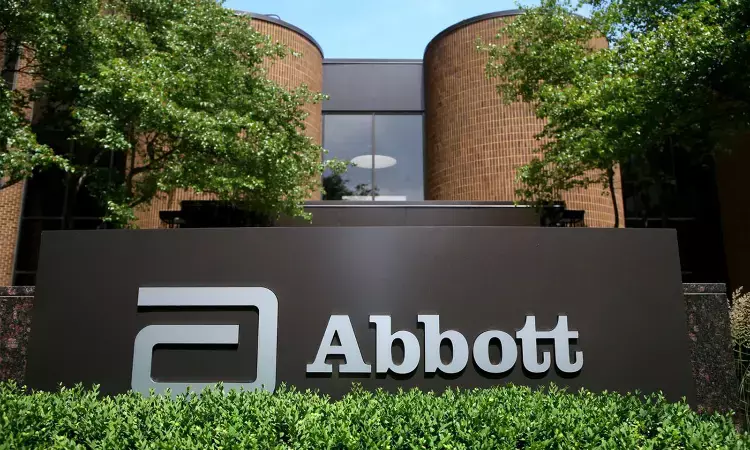- Home
- Medical news & Guidelines
- Anesthesiology
- Cardiology and CTVS
- Critical Care
- Dentistry
- Dermatology
- Diabetes and Endocrinology
- ENT
- Gastroenterology
- Medicine
- Nephrology
- Neurology
- Obstretics-Gynaecology
- Oncology
- Ophthalmology
- Orthopaedics
- Pediatrics-Neonatology
- Psychiatry
- Pulmonology
- Radiology
- Surgery
- Urology
- Laboratory Medicine
- Diet
- Nursing
- Paramedical
- Physiotherapy
- Health news
- Fact Check
- Bone Health Fact Check
- Brain Health Fact Check
- Cancer Related Fact Check
- Child Care Fact Check
- Dental and oral health fact check
- Diabetes and metabolic health fact check
- Diet and Nutrition Fact Check
- Eye and ENT Care Fact Check
- Fitness fact check
- Gut health fact check
- Heart health fact check
- Kidney health fact check
- Medical education fact check
- Men's health fact check
- Respiratory fact check
- Skin and hair care fact check
- Vaccine and Immunization fact check
- Women's health fact check
- AYUSH
- State News
- Andaman and Nicobar Islands
- Andhra Pradesh
- Arunachal Pradesh
- Assam
- Bihar
- Chandigarh
- Chattisgarh
- Dadra and Nagar Haveli
- Daman and Diu
- Delhi
- Goa
- Gujarat
- Haryana
- Himachal Pradesh
- Jammu & Kashmir
- Jharkhand
- Karnataka
- Kerala
- Ladakh
- Lakshadweep
- Madhya Pradesh
- Maharashtra
- Manipur
- Meghalaya
- Mizoram
- Nagaland
- Odisha
- Puducherry
- Punjab
- Rajasthan
- Sikkim
- Tamil Nadu
- Telangana
- Tripura
- Uttar Pradesh
- Uttrakhand
- West Bengal
- Medical Education
- Industry
Abbott gets USFDA breakthrough device designation for deep brain stimulation system in depression

Abbott's DBS system is a personalized, adjustable therapy that involves implanting thin wires – or leads – into targeted areas of the brain.
Abbott Park, Ill.: Abbott has announced that the U.S. Food and Drug Administration (USFDA) has granted Breakthrough Device Designation to investigate the use of its deep brain stimulation (DBS) system in treatment-resistant depression (TRD), a form of major depressive disorder (MDD).
Breakthrough Device Designation expedites the review of innovative technologies that can improve the lives of people with life-threatening or irreversibly debilitating diseases or conditions.
Abbott's DBS system is a personalized, adjustable therapy that involves implanting thin wires – or leads – into targeted areas of the brain. A pulse generator implanted under the skin in the chest is connected to the leads and produces electrical impulses that can modulate abnormal brain activity. While Abbott's DBS system has traditionally been used to help control symptoms for people with movement disorders, such as Parkinson's disease and essential tremor, evidence suggests that implanting electrodes in the part of the brain that regulates mood could help reduce symptoms of TRD. Abbott is working with the FDA to develop a plan for evaluating the device's safety and effectiveness for this purpose. One of the added benefits of certain Abbott DBS systems is that they can be used with NeuroSphere Virtual Clinic, a first-of-its-kind connected care technology that allows people to communicate with and receive care and therapy adjustments from their doctors remotely and from the comfort of their own home.
For patients who suffer from TRD, a condition that costs the U.S. approximately $44 billion a year in healthcare, unemployment and lost productivity, deep brain stimulation has the potential to offer meaningful improvement of depressive symptoms. Currently, physicians have access to a range of treatments for MDD, also called clinical depression, including antidepressant medications and device therapies. Despite this, up to a third of individuals diagnosed with MDD – approximately 2.8 million Americans each year – do not respond even after trying four different antidepressant regimen approaches resulting in TRD or difficult-to-treat depression. With each failed treatment, the chance of experiencing a decrease in symptoms drops. By the fourth failed treatment, as many as 83% of patients will relapse.
To qualify for a Breakthrough Device Designation, a device technology must address an unmet need and show that it has the potential to provide for more effective treatment of life-threatening diseases or irreversibly debilitating conditions. The goal of the program is to provide patients and clinicians with timely access to these breakthrough treatments by accelerating their development, assessment and review while maintaining regulatory standards for pre-market approval. With Breakthrough Device Designation, Abbott's DBS system could become available as a new treatment option sooner for people affected by TRD.
"Breakthrough product development always requires bold thinking and collaboration, and Abbott is fully committed to the journey of providing people with new therapeutic options for their treatment-resistant depression," said Pedro Malha, vice president, neuromodulation, Abbott.
Abbott DBS therapy for treatment resistant depression is limited to investigational use only.
Read also: Baby formula production resumes at Abbott Nutrition factory in Michigan
Ruchika Sharma joined Medical Dialogue as an Correspondent for the Business Section in 2019. She covers all the updates in the Pharmaceutical field, Policy, Insurance, Business Healthcare, Medical News, Health News, Pharma News, Healthcare and Investment. She has completed her B.Com from Delhi University and then pursued postgraduation in M.Com. She can be contacted at editorial@medicaldialogues.in Contact no. 011-43720751


